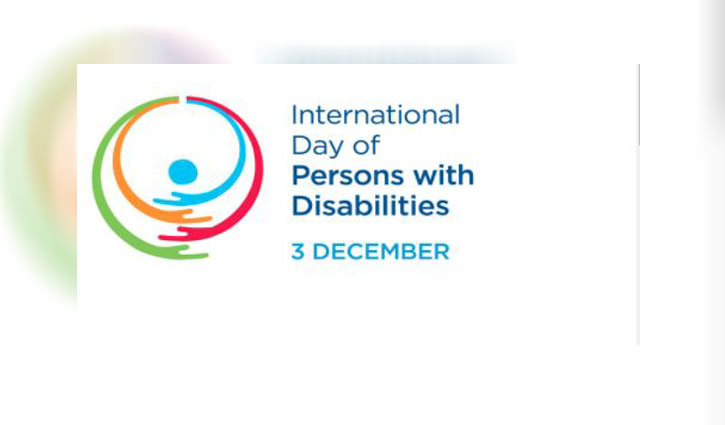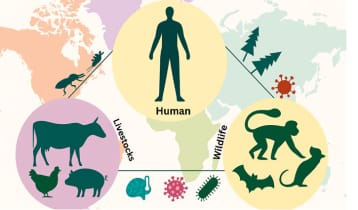Menstrual health of women with disabilities and a real scenario in COVID-19 situation
Swarna Moye Sarker || risingbd.com

Liza (pseudonym) is a woman with physical disability having the age of 27. She has obtained her graduation degree defeating hundreds of obstacles. After the second marriage of her father, she is living with her mother in the village. Now she is struggling there with her sick mother. She wishes to be a government primary school teacher but physical disability debars from implementation of her long cherished dream. Every day she needs to go to the washroom with the assistance of others. Liza has to take little food and water than what she needs actually because she requires preventing her from going to the washroom more than three times a day as it needs assistance from others. Due to old age and sickness, mother cannot help Liza. Sometimes, Liza cannot take her dinner in absence of her neighbour as she has dependency on her neighbour's assistance. Liza has to face the unhealthiest problems during her menstrual cycle as her family is very poor to buy the ‘Sanitary Napkins’ for her monthly usage but compels to use cotton cloth in her menstrual cycle. Although usage of ‘Sanitary Napkins’ during menstruation is very important, she surrendered to her poverty. The cloth which she used in the menstrual cycle cannot be cleaned and dried properly by her. Her father has stopped communicating with them from the beginning of ‘Corona Pandemic’. Liza wants to work with her qualification and to live with self-dignity.
Considering the socio-economic context of Bangladesh, there is a lot of ignorance, secrecy, shame, fear, prejudice and cruelty among the common people about menstruation. Women with disabilities are also in trouble with the corona pandemic situation which made them more vulnerable. According to ‘United Nations’, People with disabilities (PWDs) are left behind in access to education, health care, income and social participation. Particularly, women and girls with disabilities face a greater risk of domestic violence which has accelerated during the pandemic. The United Nations also has advised everyone to be more caring for Persons with Disabilities (PWDs).
BRIDGE Foundation has conducted a survey via Online and Telecommunication to assess the perception and barriers women with disabilities face during menstrual cycle. The alarming findings have emerged from a survey that 75% of women with disabilities use old clothes and tissues during their menstruation cycle. COVID-19 pandemic is causing big problems for women with disabilities as it’s evidenced by this survey that 66% of women with disabilities could not eat nutritious food. Most of the women with disabilities have heard of ‘Sanitary Napkins’ but don’t get the opportunity to use it for maintenance of self-menstrual hygiene. Survey discloses that ‘Many families especially women with intellectual disabilities have a tendency to caulk the menstruating cycle applying medicine.
High cost and scarcity of assistive and communicative devices like wheelchairs, white canes, smartphones and internet etc. have restrained the access and movement of women with disabilities that have made life deteriorating and which deprived also women with disabilities from their basic needs. Women with disabilities have to face various problems due to lack of proper knowledge and awareness regarding menstrual hygiene. For being cost effective, the most of women with disabilities cannot manage to buy ‘Sanitary Napkins’ for maintaining hygiene in menstrual cycle even though they want to.
Salma Mahbub, General Secretary of Bangladesh Society for the Change and Advocacy Nexus (B-SCAN), recommended that “Government should include the need of women with disabilities giving special importance in menstrual management working plan. Especially for women with severe disabilities it should be ensured the caregiver management system and make available different assistive devices for sacks of accessible communication.”
Women with disabilities are negated and deprived a lot since their birth. Survey witnessed that currently 56% of women with disabilities are victim of physical and mental torture. Sometimes they are bound to face and endure physical and mental torture with sexual harassment because people meted them as burden for both family and society for that they exclude from justice. Every woman with disability expects a healthy, happy and dignified life like other women with non-disabilities but the lack of proper hygiene policy and friendly social environment with negligence attitudes towards women with disabilities has made their lives climacteric.
Advocate Firoj Uddin, Expert on Rights and Laws of PDWs, opined that “Getting health services is a legal right of persons with disabilities (PWDs) which was internationally recognised by United Nation Convention on the Rights of persons with disabilities (UNCRPD), 2006 in article-25 by promised to ensure attainable health service for the persons with disabilities (PWDs). A partial reflection of UNCRPD, 2006 is also noticed in the Rights and Protection Act, 2013 of Persons with disabilities Act, 2013 of BD in section 16(L) and Schedule-3 but still now it is under progress as health rights is attainable through economic development and no compulsion is imposed upon the government by UNCRPD and Act even by the Constitution and no scope to go to court for its compliance. To realize health service for persons with disabilities (PWDs), the government should ensure separate monetary allocation and experts of persons with disabilities (PWDs) rights should work with government to ensure health service.
Experts stated that when sanitary products are hard to obtain, it means people might resort to using unhygienic alternatives that can increase their risk of reproductive, urinary tract infections which may lead to cancer. These issues existed before the pandemic and now it’s made the situation worse. Government initiatives are required to provide free sanitary napkins free with government allowances including reducing the price of sanitary napkins for the monthly care of women with disabilities.
If training for making sanitary napkins is managed to provide through the joint initiative of government and private organisations, the women with disabilities will be able to make ‘sanitary napkins’ at home and solve their financial problems by selling extra napkins after meeting the needs of themselves and their families. To this regard, the Ministry of Social Welfare and the Ministry of Women and Children can play an important role to ensure menstrual hygiene of women with disabilities. Above all it shall help to achieve economic and sustainable development goals if women with disabilities get proper health service.
Author: Co-founder and Vice president, BRIDGE Foundation
AI























